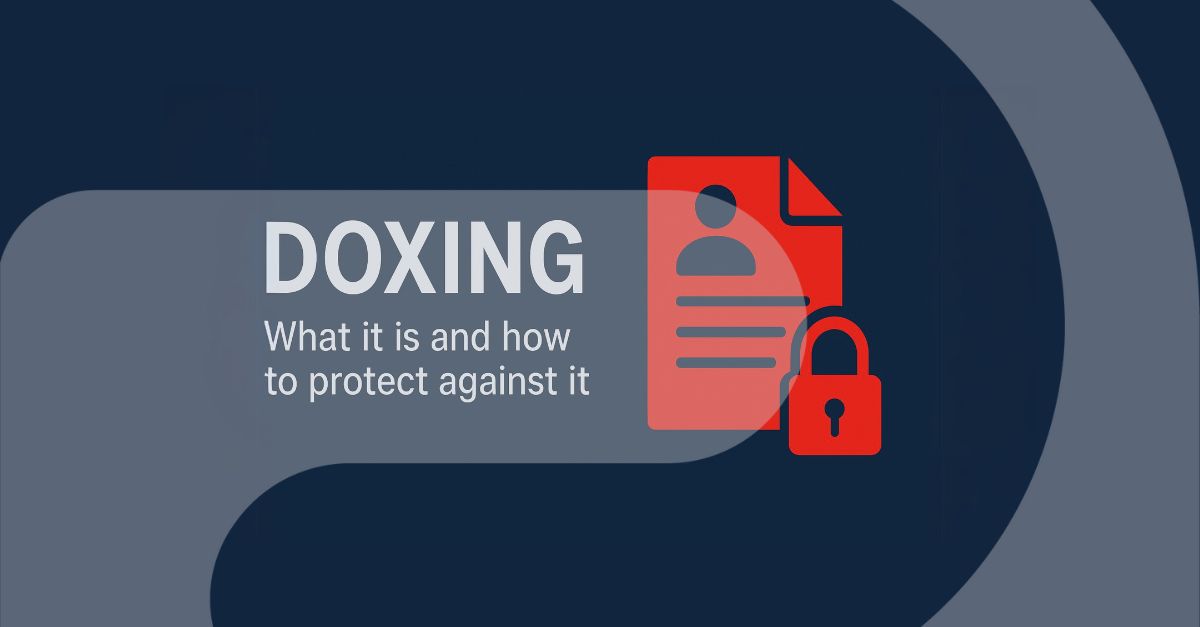The No-Nonsense Guide to Doxing (and How to Stay Safe)

What is Doxing?
"Doxing" (short for "dropping documents") is when someone finds and shares your personal information online without your permission. It could be your full name, home address, phone number, email, workplace, or even your family's details. Usually, this is done to harass, threaten, or embarrass someone.
Real-World Examples of Doxing
Let’s break this down with some real-world scenarios. ◾ Imagine you’re in an argument on social media and someone decides to take it a step further by digging up your personal details—your real name, where you work, maybe even your phone number—and they post it publicly to embarrass or intimidate you. That’s doxing. ◾ Or let’s say you win a heated online game and someone on the losing side gets petty. They somehow find your address and post it on a gaming forum to get back at you. Scary, right? ◾ Sometimes, it can happen to people just for being part of something—like attending a protest or speaking out on a public issue. Someone might leak their private info to silence or threaten them. It can start as a small jab but quickly turn into a serious safety issue.
How to Protect Yourself from Doxing
You don’t need to be super tech-savvy to protect yourself. ◾ Start with how much you share online. Oversharing is a big risk factor. If your social media is public and you’re posting things like your location, birthday, or vacation plans, you’re giving strangers more info than you probably realize. Keep things like your home address and phone number off your profiles. ◾ Use a nickname or alias if you can, and set your accounts to private. ◾ Then there's account security. Use strong, unique passwords and set up two-factor authentication wherever possible. It might feel like a hassle at first, but it adds a serious layer of protection. Also, take a little time to clean house—delete old or unused accounts that could still be floating out there with your info attached. ◾ Another step is checking what’s already out there. Try Googling yourself. You might be surprised what pops up. There are also sites like Whitepages and Spokeo that list people's personal details, and you can request to have your info removed from them. If that sounds like too much work, tools like DeleteMe or Kanary can help automate the process. ◾ Be careful with what you click. That random link someone sent you? It might be a trap. Only download files or apps from sources you trust. ◾ Using a VPN is another smart move. It hides your real IP address and location, making it harder for someone to trace your digital steps. ◾ And finally, stay alert. Set up Google Alerts for your name and email so you know if something pops up online. If anything weird starts happening—like unfamiliar logins—don’t wait. Change your passwords immediately.
What to Do If You’ve Been Doxed
First, don’t panic. Report the doxing to the platform where it happened—Facebook, X (formerly Twitter), Reddit, wherever. Most platforms have systems for this. Take screenshots of everything and save them. Documentation is key if things escalate. If there are threats involved or you feel unsafe, contact the authorities. Your safety comes first. And if you’re overwhelmed or unsure what to do next, talk to a lawyer or a cybersecurity professional. You don’t have to handle it alone.
Final Thoughts
Doxing is a real threat, but you don’t need to live in fear of it. By being intentional about your online habits, you can greatly reduce your risk. Think of it like locking your doors at night—it’s a simple, smart precaution.
Stay safe out there, and if you ever need help protecting your digital life, you know where to find us.
